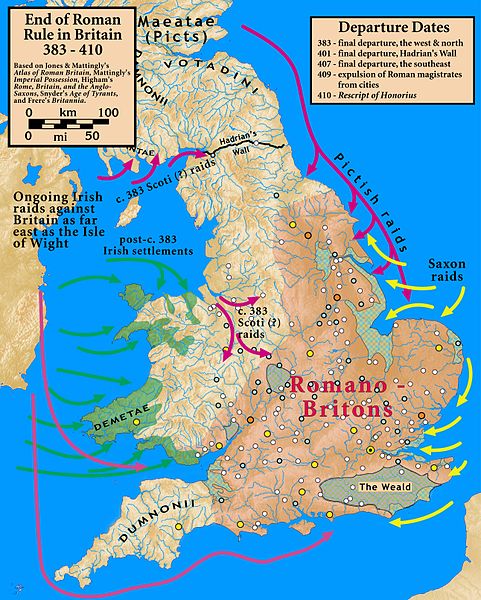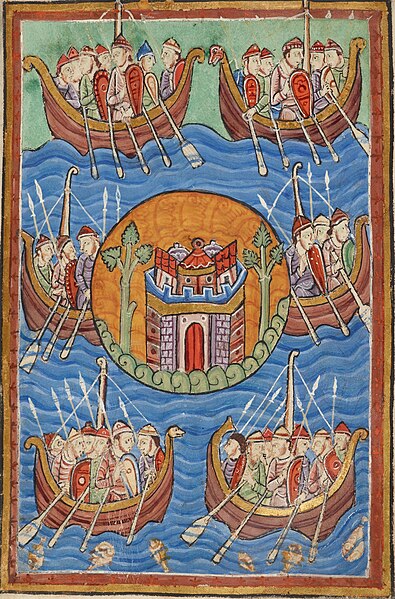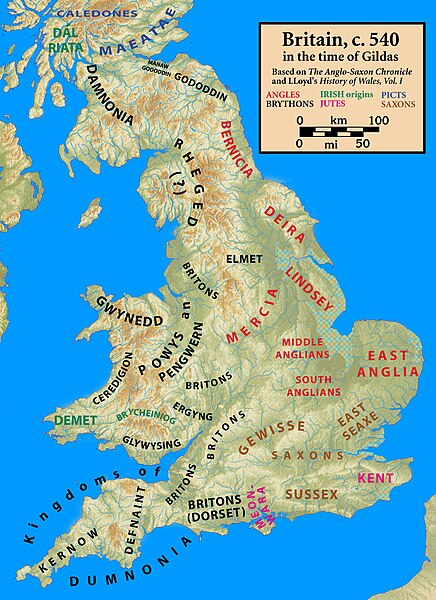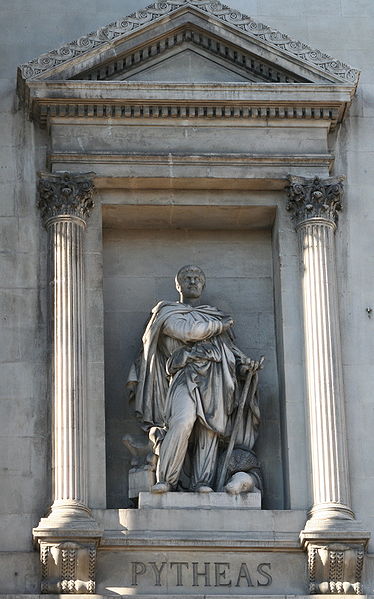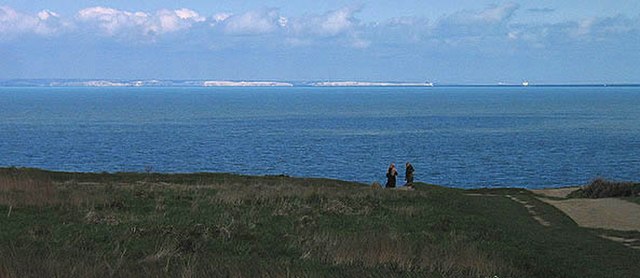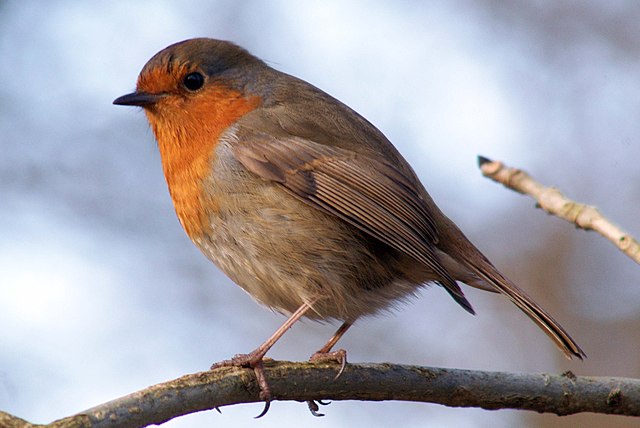Anglo-Saxon settlement of Britain
The settlement of Great Britain by diverse Germanic peoples, who eventually developed a common cultural identity as Anglo-Saxons, changed the language and culture of most of what became England from Romano-British to Germanic. This process principally occurred from the mid-fifth to early seventh centuries, following the end of Roman rule in Britain around the year 410. The settlement was followed by the establishment of the Heptarchy, Anglo-Saxon kingdoms in the south and east of Britain, later followed by the rest of modern England, and the south-east of modern Scotland. The exact nature of this change is a topic of on-going research. Questions remain about the scale, timing and nature of the settlements, and also about what happened to the previous residents of what is now England.
Britain, 383–410
An 1130 depiction of Angles, Saxons, and Jutes crossing the sea to Britain equipped with war gear from the Miscellany on the Life of St. Edmund
Britain around the year 540. Anglo-Saxon kingdom's names are coloured red or brown. Britonnic kingdoms' names are coloured black.
Folio 3v from the Petersburg Bede. The Saint Petersburg Bede (Saint Petersburg, National Library of Russia, lat. Q. v. I. 18), a near-contemporary version of the Historia ecclesiastica gentis Anglorum
Great Britain is an island in the North Atlantic Ocean off the north-west coast of continental Europe, consisting of the countries England, Scotland and Wales. With an area of 209,331 km2 (80,823 sq mi), it is the largest of the British Isles, the largest European island and the ninth-largest island in the world. It is dominated by a maritime climate with narrow temperature differences between seasons. The island of Ireland, with an area 40 per cent that of Great Britain, is to the west—these islands, along with over 1,000 smaller surrounding islands and named substantial rocks, form the British Isles archipelago.
Satellite image, 2012, with Ireland to the west and France to the south-east
Greek geographer, Pytheas of Massalia
View of Britain's coast from Cap Gris-Nez in northern France
The robin is popularly known as "Britain's favourite bird".

